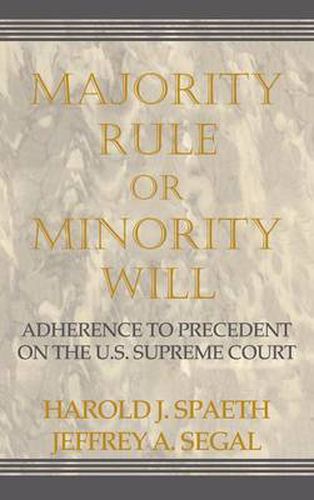Readings Newsletter
Become a Readings Member to make your shopping experience even easier.
Sign in or sign up for free!
You’re not far away from qualifying for FREE standard shipping within Australia
You’ve qualified for FREE standard shipping within Australia
The cart is loading…






This book examines the influence of precedent on the behavior of the US Supreme Court justices throughout the Court’s history. Supreme Court justices almost always follow precedent, in that they always cite precedents for the positions they take. Because there are always precedents on either side of a case for justices to follow, following precedent does not mean that the justices are ever influenced by precedent. Employing the assumption that for precedent to be an influence on the behavior of justices, it must lead to a result they would not otherwise have reached, the authors show that precedent rarely controls the justices’ votes.
$9.00 standard shipping within Australia
FREE standard shipping within Australia for orders over $100.00
Express & International shipping calculated at checkout
This book examines the influence of precedent on the behavior of the US Supreme Court justices throughout the Court’s history. Supreme Court justices almost always follow precedent, in that they always cite precedents for the positions they take. Because there are always precedents on either side of a case for justices to follow, following precedent does not mean that the justices are ever influenced by precedent. Employing the assumption that for precedent to be an influence on the behavior of justices, it must lead to a result they would not otherwise have reached, the authors show that precedent rarely controls the justices’ votes.